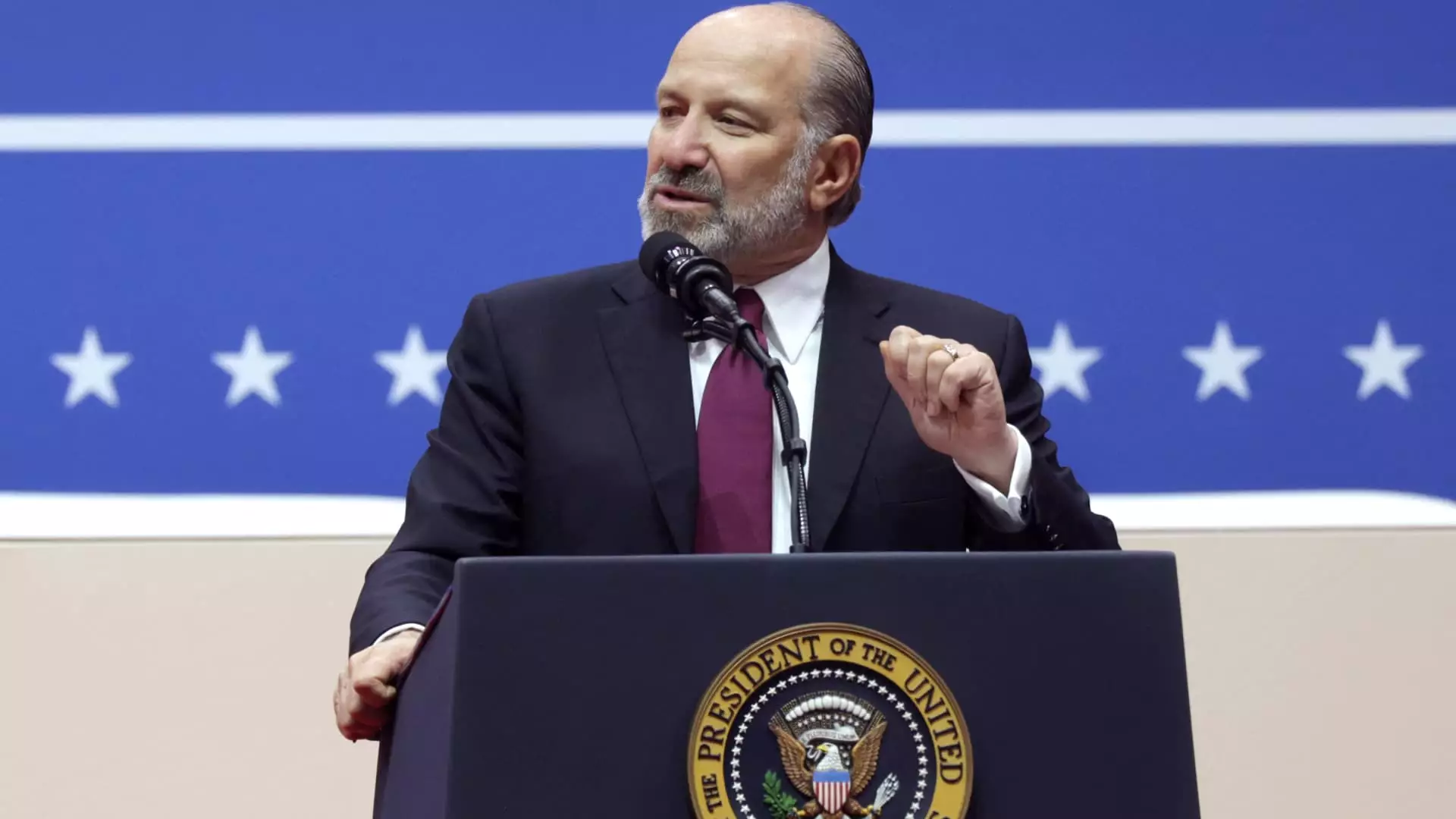In a remarkable display of the complexity and unpredictability of trade policy, comments from Commerce Secretary Howard Lutnick have ignited fresh concerns over the long-term efficacy of recently issued tariff exemptions. While there has been a sigh of relief regarding the temporary exclusions for certain electronics from reciprocal tariffs, Lutnick’s assertion that these exemptions may soon be rendered moot raises alarm bells for both consumers and industry leaders. It showcases yet another instance of how the current administration’s tumultuous approach to trade policy can create a precarious environment, undermining the very economy it seeks to protect.
Lutnick’s announcement serves as a clarion call, highlighting that even the tech products we unquestioningly rely on—smartphones, laptops, and TVs—are caught in the crosshairs of an increasingly hostile trade landscape. With tariffs reaching as high as 145%, consumers should brace themselves for a reality where the prices of their beloved gadgets soar, straining both budgets and consumer choice. At a time when many families are feeling the pinch of inflation, such a development is not just inconvenient—it is an economic burden forcing us to reevaluate our spending priorities.
The Flawed Logic Behind Tariff Strategies
The administration’s insistence on bringing manufacturing back to American soil, cloaked in the guise of national security, is troubling. Instead of fostering an innovative tech landscape, it seems that this approach is camouflaging deeper flaws in understanding international supply chains and market dynamics. Electronics are a global commodity, and the nexus of expertise in their production spans multiple nations. Attempting to isolate U.S. technology from its international partnerships risks not just higher costs but stagnation in technological advancement.
Howard Lutnick’s assertion that we cannot “be beholden” to foreign manufacturers misses a vital point: we live in an interconnected world. Over-simplifying international trade as a dichotomy of self-sufficiency versus dependence ignores the historical realities and the vast benefits derived from cooperation with capable partners. The competitive price point and innovative edge that American companies enjoy are often bolstered by these partnerships, not hindered.
A Political Storm brewing on the Horizon
Furthermore, Lutnick’s statements have intensified political rhetoric around trade, prompting reactions from figures like Senator Cory Booker. The confusion emanating from the Trump administration’s shifting policies has not only led to a crisis of credibility but is also sowing discord between political factions. Instead of fostering a united front in navigating the complexities of globalization, the current chaotic environment is igniting animosity and division.
The public’s trust should not be sacrificed on the altar of misguided economic nationalism. As consumers brace for impending price hikes and tech companies scramble to adjust strategies, the administration must realize that a transparent and cohesive trade policy is essential for actual growth and prosperity. It’s not just a question of product availability or pricing; it’s about the fundamental framework of how America positions itself in the global economy.
In these tumultuous times, one thing is clear: consumers and industry professionals alike deserve better than the whims of an erratic trade policy. The stakes are too high for economic stability and innovation to be left to the caprices of political maneuvering. The battle over tariffs is more than a transactional game—it’s about preserving the economic fabric that supports American livelihoods.


Leave a Reply